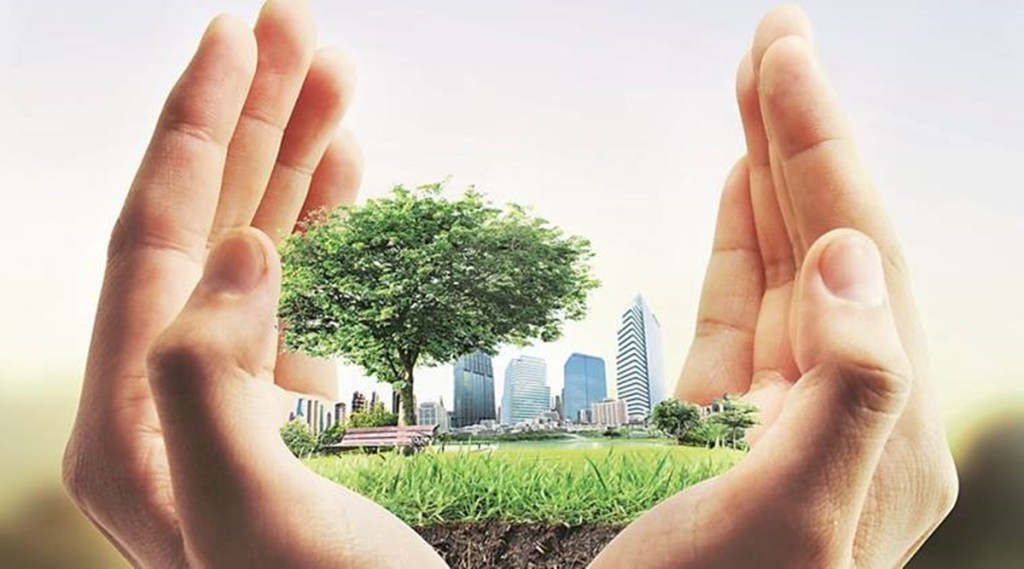Panel discussions may not be the forums for policy prescriptions but they can trigger solutions- based thinking and if the interlocutors are experts with topic-specific expertise then there is a good chance to expect outcomes that could help guide
future policies. One such insightful debate took place at the just concluded gathering of expert councils, organised by the World Economic Forum in Dubai.
On discussion was the profound topic of ‘what kind of growth do we need to sustain our future?’
Moderating the discussion, Vijay Vaitheeswaran, editor, global energy & climate innovation at The Economist, an expert himself having tracked this space for long, began by quoting the sustainability definition, as articulated by the United Nations Brundtland Commission in 1987. It was when we were “meeting the needs of the present without compromising the ability of future generations to meet their own needs.”
To Masood Ahmed, president, Center for Global Development, part of the problem lay in the inability to spread the benefits of the economic activity across majority of people with much of it getting captured by a few. “We need to rethink on how we grow and how we distribute the benefits of growth,” he said.
Bringing into the discussion, the element of the palpable “tension between inclusive growth and green growth,” Kumi Kitamori, deputy director, Environment Directorate, at the Organisation for Economic Co-operation and Development (OECD), referred to the noises of social injustice and recalled a catch line from the Yellow Jackets movement, a populist movement for economic justice that took off in France in 2018. It was addressed to the French president in response to a move to impose a green tax on fuel and questioned his narrative about “end of the world” when for the many households the priority was worrying about making ends meet by the “end of the month.”
Adding an element of caution were interjections by Alex Edmans, professor of finance at the London Business School, who felt financial growth was not the only way to think of growth and that there were other components too like physical capital apart from human, natural and financial capital that needed weight and measurement. He favoured an approach that looked at “growth in social value and not just economic value.”
Putting on the table a much deeper and profound vision was Sandor Mulsow, Tenure professor at the Austral University of Chile. He touched upon aspects that could restore the planet to its pre-human state, as it were, given that this was the only home for all. Preferring more optimal time at work with reduced work hours, he urged a “focus on efficiency for efficiency and excellence has nothing to do with the time spent (at work or) on making money.” The discussion let to common goals and the differentiated responsibilities needing multi-pronged approaches. At one end, it was about trying to build a consensus for a vision and at the other end it was about finding ways to improve human conditions. All of this, while staying conscious of the need to minimise damage to the planet and also triggering change in behaviour of the high consuming rich nations that now need to effect suitable changes internally.
To Ahmed, it was clearly the time to engage in some difficult conversations around the kind of growth we need and the trade-offs that may be needed.
As is to be expected from a professor, Edmans from the London Business School, spoke of the relevance of the ‘Coase theorem’ wherein once you create value for a wider society there is a way to re-distribute the value created to compensate those who were to lose from the value-creating activity.” For instance, rapid de-carbonisation could lead to loss of jobs and therefore would necessitate counter measures to redeploy the workforce.
OECD’s Kitamori felt a carbon tax was best when accompanied by measures that saw some of the revenue diverted to social policies that look at compensation mechanisms, re-training workers, investing in upskilling and on local development in localities that were affected. All of it, without losing sight of what governments could do to nudge individual behaviour.
Vaitheeswaran, who urged the speakers to conclude with what they thought was the most important provocation on what needed to be done next on the question of growth, saw Muslow seeking mindfulness towards ‘all the species and not just humans.” Edmans was inclined towards organisation that could think long-term or had a long-term mindset so that socially desirable investments could take place. To Vaitheeswaran, it was revisiting the Goldman Sachs mantra of stakeholder capitalism replacing shareholder capitalism. Or, to those committed to ‘greed is good,’ a cautionary call on the gains to be accrued from being ‘long-term greedy.”
